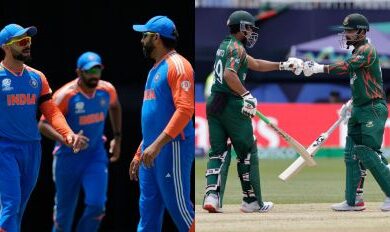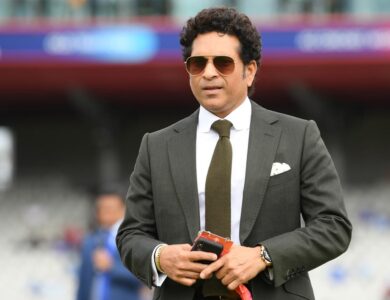
Indian Prime Minister Narendra Modi met with the president of Palestine, Mahmoud Abbas, in a significant diplomatic engagement as he reaffirmed India’s long-standing commitment to supporting the Palestinian cause, a move for which Prime Minister Modi faced much criticism from his detractors. This engagement assumes critical importance because of the increasing global concern about peace in the Middle East, particularly the ongoing Israeli-Palestinian conflict. Discussions between the two leaders mainly covered the history of India’s relations with Palestine, shared aspirations to achieve peace, and how India was a state that championed most international efforts toward the entente of Israel and Palestine.
Historical Background: India-Palestine Relations
India’s history with Palestine dates from India’s early freedom times, anchored on the grounds of its advocacy for anti-colonial struggle movements and non-aligned foreign policy. India was the first non-Arab country to recognize in 1974 the Palestine Liberation Organization as the sole legitimate representative of the Palestinian people and later, in 1988, recognized the Palestinian state. Both steps demonstrated India’s commitment to a two-state solution which calls for the peaceful coexistence of Israel and Palestine as sovereign states- a stance India continues to uphold.
This latest meeting justifies India’s consistent policy of supporting Palestinian aspirations for statehood while building strong diplomatic ties with Israel in the outreach of Prime Minister Modi to the Palestinian leadership. This type of balancing act highlights the approach of India with regard to the Israeli-Palestinian conflict, where India advocates dialogue, peaceful coexistence, and negotiation as the road to sustainable settlement.
Reaffirmation in Support of a Two-State Solution
The heart of the meeting by Prime Minister Modi with President Abbas has been reaffirmation of support for a two-state solution, in which independent and sovereign Palestinian state, not subject to occupation, finds existence within secure and recognized borders, where East Jerusalem is the capital of Palestine. Modi stated that India believes peace comes only through dialogue and mutual negotiations on both sides, rejects all forms of violence and unilateralsism as well as actions that could undermine peace-making.
It has not aligned with the international consensus on that issue. India has maintained warm ties both with Israel and Palestine; the Modi government achieved this in the complexities of the region’s geopolitics. This subtle approach will always enable India to maintain its principled stand on Palestinian statehood while deepening strategic, economic, and defense ties with Israel.
Economic and Humanitarian Support
India has been contributing to Palestine in more than political terms but also through economic aid and humanitarian aid. Indeed, the second meeting between Modi and Abbas again reminded the world of India’s continued support for Palestine in development matters. India has been involved in several initiatives to build capacities in Palestine in such areas as education, health delivery systems, and technological advancements. India has funded many projects over the years in a bid to better improve the quality of life for Palestinians: from constructing schools and hospitals to offering scholarships to Palestinian students to study in Indian universities.
Aside from financial aid, humanitarian aid has also been extended by India during a crisis. For instance, throughout tensions and periods of height in conflict, India has offered food and medicine supplies to the area. The debates on how these development cooperation engagements can be strengthened by Modi and Abbas probably centered on making sure India’s aide has a direct impact on grounds.
Strategic Diplomacy: Balancing Relations with Israel and Palestine
The most compelling feature of Indian diplomacy under Modi is a sharp balance between strong relations with Israel and Palestine. One such very important milestone to this end was when Modi became the first Indian Prime Minister ever to visit Israel in 2017, marking an important development in Indo-Israeli relations, mainly in defense, technology, and trade. The closer partnership between India and Israel, however, has not reduced the intensity of these relations with Palestine. Modi’s visit to Ramallah in 2018, while he was decorated with the Grand Collar of the State of Palestine, cemented India’s unrelenting dedication to the Palestinian cause.
This meeting with President Abbas thus indicates that India still maintains a delicate balance and remains a neutral party that can indulge in dialogue and peace with the Middle East. It is an approach that strengthens India’s presence globally in terms of diplomatic standing and, in turn, sits as an ideal mediator for Israel and Palestine in future negotiations.
India’s Role in Global Peace Initiatives
Prime Minister Modi’s foreign policy approach makes India play an active role in greater initiatives for global peace initiatives. He would probably have reminded President Abbas of the commitment of India toward contributing to global efforts being made towards a resolution of the Israeli-Palestinian conflict. Indeed, India has been reiterating the need to put an end to violence and will be calling for direct Israel-Palestine negotiations as the only solution for the settlement of the issue.
Being a rising power in the global arena, India is constructive in peace-building activities. India can constructive effect only on the two states by engaging with both Israel and Palestine. This develops India’s historical connections with the former and its steadfast positions with the latter, making India a credible player in the very complex geopolitical scenario that exists in this region.
Conclusion: A Way Forward
The meeting between Prime Minister Modi and Palestinian President Abbas underscores India’s commitment to the Palestinian cause and a peaceful resolution of the Israeli-Palestinian conflict. Meeting Abbas once again shows that India stands for the two-state solution, hoping perhaps that dialogue and diplomacy might be the keys to long-lasting peace in the Middle East.
Though India remains steadfast in its ties with Israel, the balanced approach toward the conflict keeps her well reputed with both parties. While the world looks forward to an end to the long-spanning Israeli-Palestinian issue, India’s position as a neutral and positive player in support of other peace endeavors would prove vital for the stabilization of the region.




